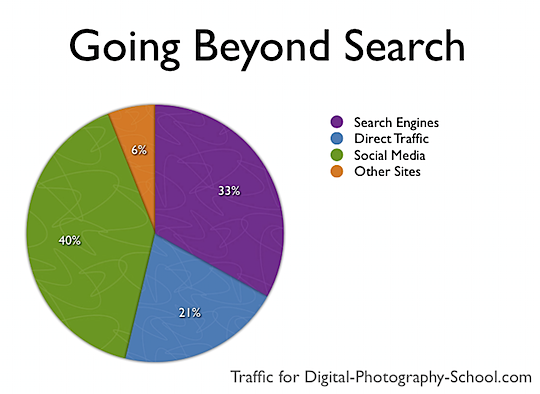How To Drive Traffic to Your Blog –
The Advice

I have kept in touch with one another since I posted about him last
and recently I asked him to consider writing a guest post here at
ProBlogger. I thought a 12 year old’s perspective on how to get
traffic to your blog might be worth hearing. Here’s his post.
When Darren Rowse comes up to you, and asks you
to write a post
for ProBlogger.net, it’s not something you can really say ‘no’
to. Not that you’d want to of course, but more the fact that it’s
the opportunity of a lifetime. Why should I write, of all people
though? Well Darren wanted to hear the methods that I as a
young person use to drive traffic to my blog, without spending
any money.
Learning the basics
First you need to grasp and understand that the Internet is
a big place. Several billion web-pages, and often with very
little time available to the end-user, they’ll use several
techniques to find what they’re looking for.

Search? Standard engines like Google, Yahoo and Live are
the most popular nowadays, and optimizing your site to be
found easily, can be easy and hard based on many factors.
My best advice for someone starting out would be to start by
building quality content for somebody to see, then progressing
to “The Three Cs”. This way, you’ll get noticed by genuinely
interested people, who’ll actively want to play a part in your
site’s development, by giving you quality feedback on ways
to improve, design and usability.

If you have a blog or a website that’s been going for several
weeks, perhaps a month or two, and you’ve done “The Three
Cs”, or at least some of them, would be to start focusing on
building on your existing content, with fresh, interesting, relevant
and unique content. Note I say ‘relevant’ and ‘unique’.
This is important. There are so many splogs out there now-a-days,
that people can quickly distinguish whether an article has been
written by somebody or not, at least the majority of the time.

Relevance too, like I said, is a key factor. If you have a very
personal blog, then one day write something completely off-topic
about a new type of golf club that comes out, people will start
to wonder if you and your blog actually have an aim or a purpose,
which is yet another vital thing to consider.
If you’re somebody with a very mature blog, that is several
months or more old, you can now focus on the technical side
of things, which is mainly down to the spiders. If you’ve been
blogging this long, then if you’re not on your own domain,

or hosting, I recommend it, as it allows for greater flexibility,
design and SEO. Search engine optimization? Yep! A Google
Sitemap can be stuck on your server for the Google-Bot
and metatags can be added, which let you pre-define information
about your page automatically, such as the author,
a description, keywords and feed information. This also makes
usability easier for feed-ready browsers like Firefox and
Internet Explorer 7. Tacky pre-set designs become a thing of
the past too, and upgrading to Wordpress can be a smart
move, as the developer community there will help you along
the way with every aspect of your blog, from the writing itself,
to the advanced functionality like widgets that are available,
and the themes that are freely downloadable to customize
your blog’s look. Of course you could always give design
a go yourself as I did at Techzi.net – though admittedly
I enlisted the help of two professional designers as well.So,
what are these ‘C’s that I’ve been talking to you so much
about anyway? Read on to find out…


No comments:
Post a Comment